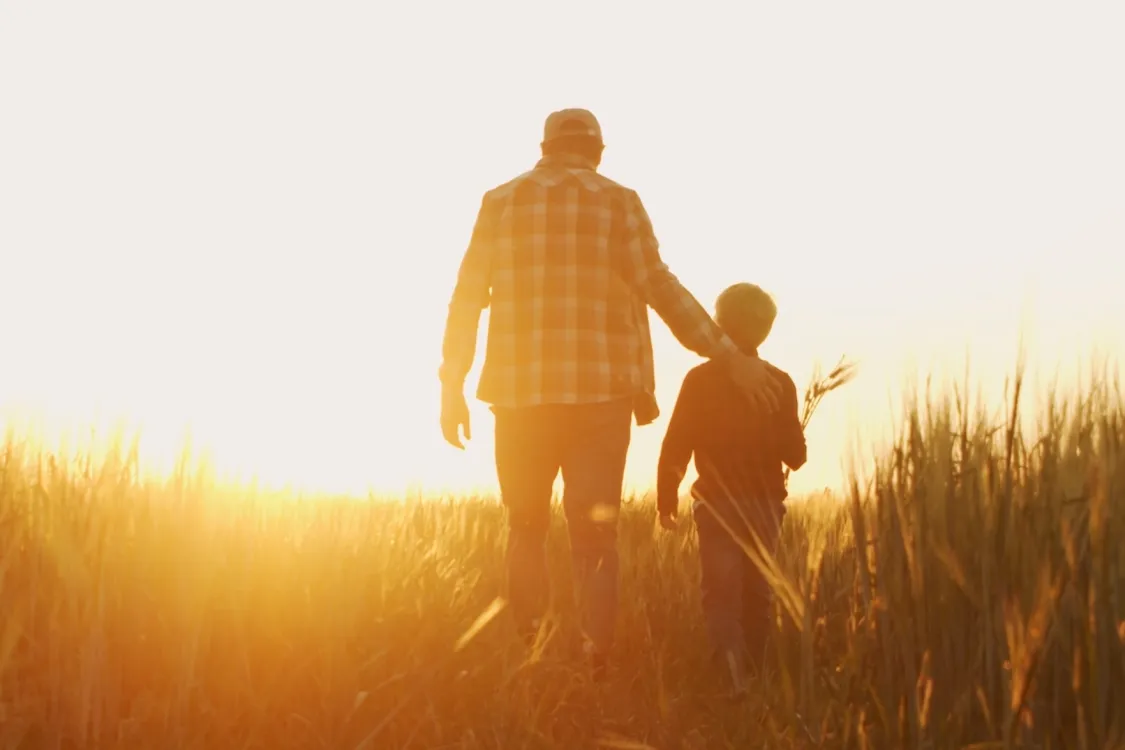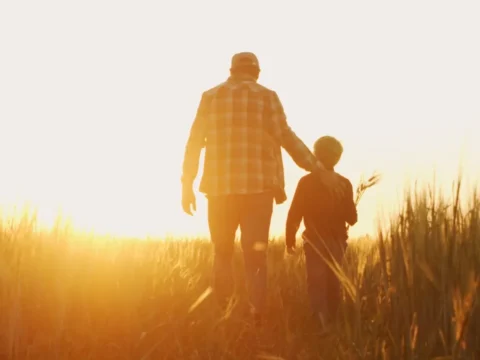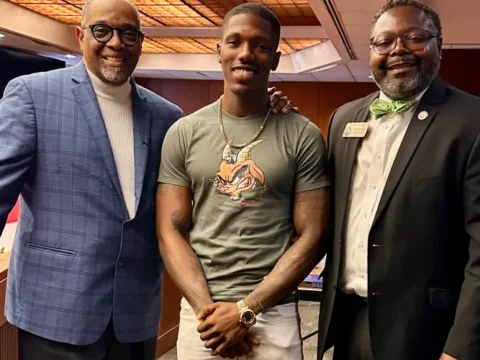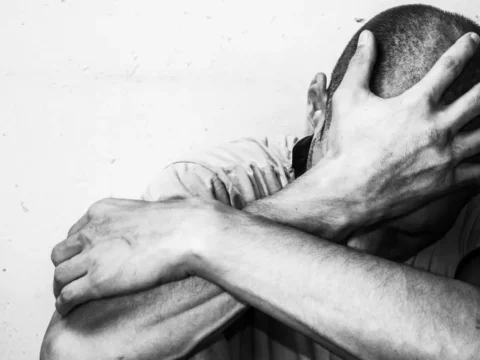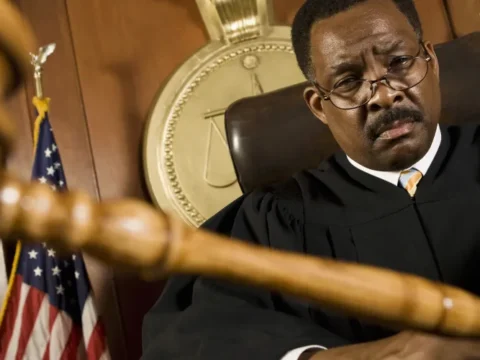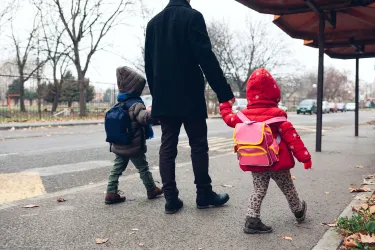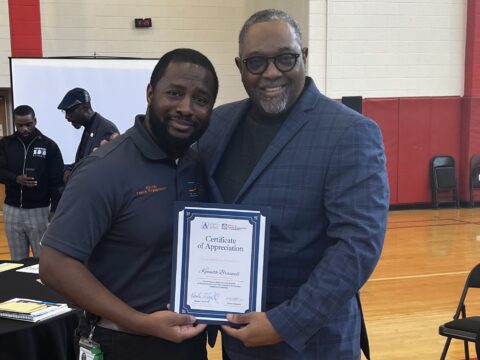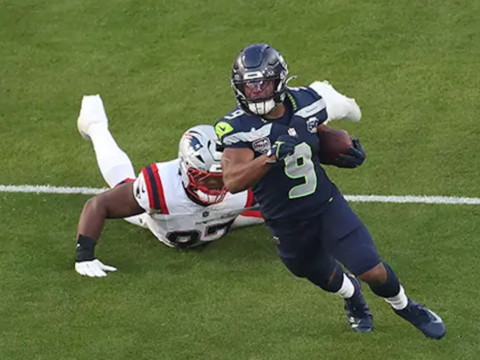By Kenneth Braswell, CEO, Fathers Incorporated
The morning we rolled into the foothills, the fog hung low enough to graze the fields. A pickup’s tailgate became our bench, a thermos our hospitality, and four dads — Zach, Joseph, Jamie, and Andrew — our teachers.
We came to film public service announcements as part of our work with the National Responsible Fatherhood Clearinghouse (NRFC), but what we really came to do was listen. We came to hear not from “rural dads” as a category or stereotype but to men who are carrying miles on their backs and still showing up — at dawn in a barn, after a shift at the mill, between AA chips and custody exchanges — to love their children as best as they know how.
Rural fatherhood doesn’t announce itself with headlines. It’s a quiet hum. It’s the long drive to a pediatric appointment because the nearest clinic isn’t near. It’s a phone held to the sky searching for one more bar so a dad can read “Goodnight Moon” over FaceTime. It’s a pay stub that barely covers gas and diapers but still stretches to buy the cleats your son won’t take off even for sleep.
Rural fatherhood is also a generosity that keeps surprising me: Each of the four men we talked with is giving back. Each is taking time to show another dad the paperwork, the meetings, the routes around shame that make the road a bit straighter for the headlights coming behind him.
This isn’t new ground for us at Fathers Incorporated, but lately we’ve been digging deeper. In West Virginia, we sat with family resource center staff who are holding entire counties together with gumption and calendars. They told us about substance use and recovery, about unemployment and the stubborn dignity of men who still look for work, about housing that’s one plumbing leak away from crisis, about transportation that turns every errand into a day trip. On a map, these are policy problems. In a kitchen, they are what keep a dad from making it to Tuesday’s visit. And they are why we have to do this work with both hands — program and policy, narrative and navigation.
When we say “responsible fatherhood,” we are not talking about morality. We’re talking about presence under pressure. Young fathers, especially those between 16 and 26, are often moving into adulthood while learning to parent, and they’re doing it with fewer supports than we like to imagine. They want to be there, and they need the road under them to stop shifting so much.
That is why our team, through the NRFC, built a new guide, “Navigating the Fatherhood Lane,” with a special section for rural dads we call “Navigating the Backroads.” It puts plain-language tools where they’re most needed: finding work where the roads aren’t paved, checking the “engine light” on substance use and mental health, parenting across miles, and busting the myths that make rural fathers invisible.
The guide doesn’t pretend that love alone fills the tank. It names what we see and hear. One in 10 fathers experiences postpartum depression, but no one tells men and boys that their hormones will change, too, when the baby comes or that they may feel waves of sadness or numbness and wonder what’s wrong with them. We’re here to remind you that nothing is “wrong” with you; you’re a father, and your body knows it.
One in eight children grows up with a parent who struggles with substance use. These households are not moral failures; they’re red flags waving for help, with recovery pathways that have to be close enough and flexible enough to catch a dad before he slips. And when the budget says there’s no money for child care, when internet access is a rumor, when a job is three buses and a ride away, even the most committed father needs a map and a convoy.
I keep replaying a moment from that Appalachian morning when we filmed the PSAs. The cameras were down. The jokes had thinned, and the fog had lifted, revealing a pale blue sky. One of the dads looked over the ridge and said, almost to himself, “I didn’t know I had it in me to be this kind of father.” I know that feeling.
Most of us only discover our best fathering after we’ve been asked for it, then asked again, and then given just enough direction to find the next turn. That’s what we mean by “clearinghouse.” The NRFC is not a warehouse of pamphlets but a workspace where men can grab tools that fit their hands and get back on the road.
So here’s what I’m asking of all of us who care about fathers, families, and the places we call home:
- If you’re a dad in the hills, the plains, the pines, or a one-stoplight town, let us walk with you. Download “Navigating the Fatherhood Lane” at PoppaUniversity or Fatherhood.gov. It’s free. It’s practical. And it’s yours. Put it on the dash.
- Dads, you can also call 877-4DAD-411 or email (Help@FatherhoodGov.Info) the NRFC anytime you don’t know who else to ask. Check in with yourself. If the “engine light” is on — anger, isolation, drinking to steady your hands — reach out before the knocking gets worse. Your strength isn’t measured by how tightly you keep quiet; it’s measured by how quickly you gather what you need for your child and yourself.
- If you’re a practitioner or policymaker, build for the backroads. Design services to account for distance and time — not as footnotes, but as first principles. Bring screenings, job training, and co-parenting support to where dads are already: job sites, barbershops, churches, recovery meetings, and ballfields. Budget for gas cards and childcare stipends. Schedule around shift work. Put Wi-Fi where the signal dies. Recruit fathers into the planning, not as a constituency to be reached but as co-architects of the solution.
- If you’re a neighbor, a coach, an employer, or a faith leader, notice the dads. Ask about the kids by name. Offer the ride. Flex the schedule for the parent-teacher meeting. Keep a spare car seat at the church. Celebrate the small wins the way you celebrate a state title: the first week on time, the first sober month, the bedtime story read every night in a row. In places where shame travels faster than news, let honor outrun it.
We’ll be airing the PSAs we filmed with Zach, Joseph, Jamie, and Andrew soon. You’ll see what I mean when I say they’re teachers: steady voices, no pity, only truth and love.
But you don’t have to wait for the broadcast to do something that matters. The next mile marker is yours to choose. Download the guide. Share it with a young dad. Invite him to sit on a tailgate and talk. Write the county about transportation dollars. Fund a hotspot at the library. Put fatherhood on the agenda at your coalition meeting. Show up in the ways rural families actually live.
We’re proud of this work. The narrative of responsible fatherhood is wider than any one road, and it absolutely includes the gravel, the switchbacks, and the places where the shoulder gives way to ditch. Rural dads are not afterthoughts in our story. They’re the ones keeping the engine running without a mechanic for 30 miles, teaching their kids to steer by the line where field meets sky, and waving us on when the lane narrows.
If you’re that dad, hear me: You are not alone. Your lane matters. Keep driving. We’ll keep meeting you where you are, with maps and tools and a chorus of voices saying what those four men said to us in the cool of the morning — you can do this, and we’ll do it with you.

